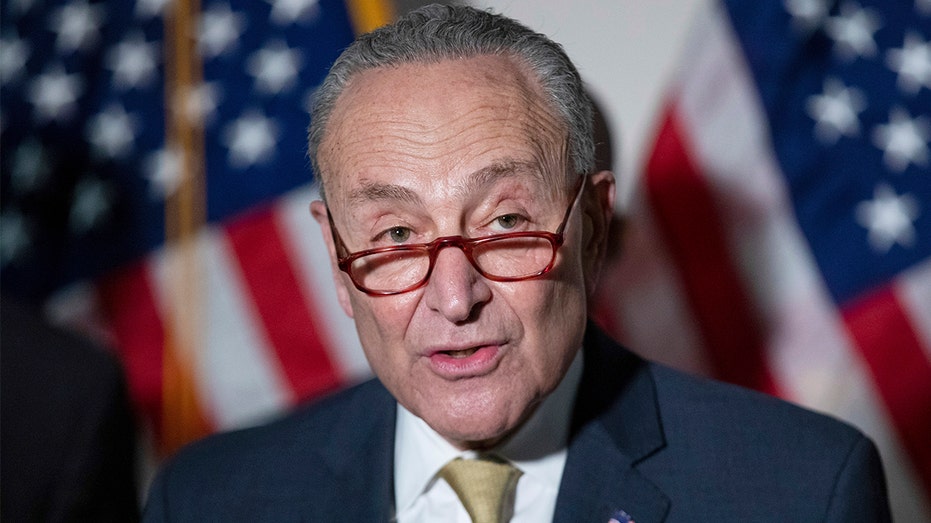Centre bans separatist Masarat Alam’s Muslim League Jammu & Kashmir for 5 years for anti-national activities

Union Minister Amit Shah said the organisation and its members are involved in anti-national and secessionist activities in Jammu and Kashmir.
Texans grapple with numerous challenges, yet many are actively seeking solutions

Across the state, people are looking for ways to make Texas a better place to live as they tackle hunger, rural “brain drain,” health care obstacles and other impediments.
Reports about police actions in U.S. mass shootings lack standardization and often leave unanswered questions

A lack of national standards leads to wide variability in after-action examinations of law enforcement’s response, ProPublica, The Texas Tribune and FRONTLINE found.
India’s Covid JN.1 variant tally crosses 100 after 40 more infections

Most of the patients are currently in home isolation, officials said. There is no cause of immediate concern as 92 per cent of those infected are opting for home-based treatment, they added.
Political crisis in Nigerian oil capital sparks fears of more economic woes

Abuja, Nigeria – On October 30, oil-rich Rivers State, Nigeria’s oil capital, became the latest hub of political drama in the country following the state parliament’s attempted impeachment of Siminalayi Fubara, who had been governor for only five months. The impeachment notice was signed by 24 of 32 lawmakers, all loyal to Nyesom Wike, Fubara’s predecessor, who was hitherto seen as his “political godfather”. Wike has accused Fubara of wanting to destabilise the structure that brought him to office. Since then, a political crisis has unfolded, impeding governance in the state and risking crude production in Africa’s largest oil producer. The parliament complex was burned down; 27 lawmakers defected from the Peoples Democratic Party to the All Progressives Congress – the opposition at state level but the national ruling party – while the remaining five elected a factional speaker; Fubara presented the 2024 budget to these five lawmakers and nine members of the state cabinet resigned. The crisis split the parliament into two factions: one backed by Wike, now a federal minister, and the other faction loyal to Fubara. A night before the impeachment attempt, an explosion by unknown arsonists destroyed a section of the legislative complex. During Fubara’s inspection tour of the complex the next day, the police fired tear gas at him. Nigeria’s President Bola Tinubu met with parties involved in the crisis on December 18. After the meeting, the parties involved reportedly signed a resolution stating that court cases instituted by Fubara be withdrawn and the state parliament drop all impeachment proceedings against him. Confidence MacHarry, a lead security analyst at Lagos-based consultancy SBM Intelligence, says although the move may be in the interests of peace, such intervention could “end badly.” “That kind of direct intervention of Tinubu sets a dangerous precedent and people in the state are not taking it quite kindly being that the president is not from the region and he is from a different political party [APC],” MacHarry told Al Jazeera. He explained that because Wike played a critical role in ensuring the president got the majority of votes from the state during the February 25 election and was then appointed a minister, “people do not think the president would be an impartial arbiter”. Former Rivers State Governor Nyesom Wike addresses the Peoples Democratic Party delegates during a special convention in Abuja, Nigeria, on May 28, 2022 [File: Afolabi Sotunde/Reuters] Risk to the economy The peace agreement has barely resolved the crisis, creating fears of continued risk to the oil capital, even as Nigeria’s economy, which is overly reliant on oil exports, continues to plummet. At least 90 percent of the country’s revenue goes to servicing its debt obligations and workers have threatened strikes if there is no pay increase to counter a cost-of-living crisis, worsened by a controversial fuel subsidy ending in May. For decades, crude oil from the delta has accounted for the majority of the country’s export earnings. Rivers, one of the six states in the region, is home to pipelines that transport crude from other states to its Bonny export terminal. In 2021, the state accounted for 6.5 percent of Nigeria’s entire revenue. “If the political crisis continues, it could spread to other parts of the Niger Delta which will be more devastating to the economy,” says Gabriel Adeola, a professor of political science specialising in political economy at Crawford University, Ogun State. Nigeria’s crude production averages 1.25 million barrels per day (bpd), according to data from the Organization of the Petroleum Exporting Countries (OPEC). Revenue from non-oil outpaced that of oil by 1.5 trillion Nigerian naira ($1.9bn) in 2022, due to factors such as oil theft – which cost Nigeria at least $2bn between January and August 2022 alone and caused oil production to dip. Still, experts like Peter Medee, associate professor of economics at the University of Port Harcourt, insist that Nigeria cannot thrive on revenue from non-oil sectors alone. “Oil is the nerve centre of [Nigeria’s] economy … If anything happens to oil production, it means that 60 percent of revenue is gone,” Medee told Al Jazeera. [embedded content] ‘Recipe for disaster’ There are also fears that the political crisis could eventually snowball into an ethnic crisis because of the identity of the main actors. Fubara is Ijaw, Nigeria’s fourth largest ethnicity and spread across the delta while Wike is Ikwerre, the largest ethnic group in Rivers. Zoning and rotation of positions is an often unwritten rule in Nigerian politics, ostensibly to ensure equality in what is a very diverse society. Until Fubara’s election victory in March, no Ijaw had become governor since the return to democracy in 1999; all three of his predecessors in that time have been Ikwerre. Already, Ijaws have started drumming support for the governor. Jonathan Lokpobiri, president of the nationalist Ijaw Youth Council (IYC), said his people were already “worried about the catastrophic effect this crisis may have on Rivers State and the spiral effect it will have on the entire Niger Delta”. The current developments, Lokpobiri told Al Jazeera, have so far “undermined and insulted the sensibilities of the Ijaw people”. He said a lack of a fair and lasting solution could force the people to deploy different means in showing support for the governor, warning that interested parties could “go destructive which tends to get attention faster and better”. “The president’s [actions and inactions] can be a recipe for disaster not just in Rivers State but the Niger Delta,” he warned. “If this issue is not managed and the president thinks it does not affect him, it will affect the oil industry.” This could lead to an armed revolution, says Medee. “People revolt in their area of advantage and one of their [Ijaw people] area of advantage is the oil pipeline that carries crude from other parts of the state through Ogoniland in Rivers …they could cut it off,” he told Al Jazeera. A man throws dead fish back into a polluted river in Ogoniland, Rivers State, Nigeria,
US eyes reports Iran has accelerated uranium enrichment

Tension has risen between Washington and Tehran amid the Israel-Gaza war. The United States has expressed deep concern over reports that Iran has accelerated its production of weapons-grade uranium. The comments from a White House National Security Council spokesperson came late on Tuesday in response to a report issued by the International Atomic Energy Agency (IAEA) that warned that Tehran has accelerated production of the high-grade material. “Iran’s nuclear escalation is all the more concerning at a time when Iran-backed proxies continue their dangerous and destabilising activities in the region, including the recent deadly drone attack and other attempted attacks in Iraq and Syria and the Houthi attacks against commercial shipping vessels in the Red Sea,” the US spokesperson said. The United Nations atomic watchdog’s report to member states said that Iran has increased the rate at which it is producing near weapons-grade uranium in recent weeks, reversing a previous slowdown that started in in mid-2023. Iran had previously slowed the rate at which it was enriching uranium – the process of raising the level of uranium-235, the isotope used in nuclear fission – to 60 percent purity. Uranium enriched at 60 percent is just a step away from weapons-grade levels of 90 percent. Nuclear power stations require 3.67 percent. The IAEA said its inspectors had verified the increased rate of production since the end of November at facilities in Natanz and Fordow to about 9kg (20lb) per month, the same level of production that Iran was maintaining in the first half of 2023 before a drop to 3kg (6.6lb) per month in June. Iran’s atomic energy chief dismissed the concern on Wednesday, insisting that Iran has done “nothing new” and is working “according to the rules”. Iran’s atomic energy chief Mohammad Eslami on Wednesday dismissed the IAEA warnings, according to Iranian media. “We did nothing new and are doing the same activities according to the rules,” he said. Iranian officials have consistently stated they have no plans or intentions regarding the creation of nuclear weapons. Raised tension Iran appeared to have slowed its enrichment programme earlier this year as a gesture as informal talks with the US over a nuclear treaty resumed. But the Israel-Gaza war has raised tensions between Washington and Tehran. A confidential IAEA report released last month indicated that Iran’s estimated stockpile of enriched uranium had reached more than 22 times the limit set out in a 2015 accord between Tehran and world powers, limiting Iran’s nuclear activities in exchange for lifting sanctions. Iran’s total enriched uranium stockpile was estimated at 4,486.8kg (9,891.7lb) as of October 28, up by 693.1kg (1,528lb) from August, the report said. The limit in the 2015 deal was set at 202.8kg (447lb). However, that accord fell apart in 2018 when then-president Donald Trump pulled the US out of it. President Joe Biden has tried to revive the accord through talks in Vienna, but the process has been at a standstill since the summer of 2022. Antagonism was already on the rise ahead of Hamas’s October 7 assault on Israel, with Iran offering support to Russia’s invasion of Ukraine. In September, the IAEA complained that Tehran had effectively barred several of its most experienced inspectors from monitoring the country’s nuclear programme. Adblock test (Why?)
Israel-Hamas war: List of key events, day 82

EXPLAINER Attacks continue in West Bank’s Nur Shams and safe zones might be targeted – here are the latest updates. Here’s how things stand on Wednesday, December 27, 2023: Latest updates Israeli army chief Herzi Halevi has said that the military would not refrain from operating in areas declared safe zones if “terrorist” activity is detected there. Around 80 bodies of Palestinians killed by the Israeli army were returned to the Gaza Strip on Tuesday through the Karem Abu Salem (Kerem Shalom) crossing. They were received by the Ministry of Health. The Government Media Office in Gaza said the bodies had been delivered “mutilated” and accused the Israelis of removing “vital organs from them”. Internet and telecommunications in Gaza have been experiencing halts and shutdowns due to damaged infrastructure. This has also jeopardised the provision of life-saving assistance by first responders and humanitarian agencies. Palestine’s representative to the UN, Riyad Mansour, wrote to the president of the UN Security Council that Israel’s attacks on Gaza have only intensified in the four days since the passage of the latest UN resolution on increasing aid in Gaza. In letter to #UNSC, @Palestine_UN says #Israel is making a mockery of the Security Council, noting that the occupying power has not only continued its violations but has escalated them in the 4 days since the adoption of res. 2720. “Israel remains intransigent, deepening this… pic.twitter.com/VxrI5tt1rj — Rami Ayari (@Raminho) December 26, 2023 Human impact and fighting Between Saturday and Tuesday, 858 Palestinians were killed and 1598 were injured in Gaza, said the enclave’s Health Ministry. 241 people have been killed and 382 have been injured in the past 24 hours, Gaza’s Health Ministry has said. Red Sea attacks by the Yemeni Houthis spiked on Tuesday. The US military said it shot down 12 one-way attack drones, three antiship ballistic missiles and two land attack cruise missiles fired by the group over 10 hours. Diplomacy On Tuesday, UN chief Antonio Guterres announced that Sigrid Kaag will be the Senior Humanitarian and Reconstruction Coordinator for Gaza. Kaag will oversee humanitarian aid consignments to the strip, according to the recent UN resolution. Cuban president, Miguel Diaz-Canel, denounced Israel on Tuesday. “The genocide committed by the terrorist state of Israel in Gaza is a humiliation for all humanity,” he wrote on X. Israel’s Strategic Affairs Minister Ron Dermer reportedly met with US National Security Advisor Jake Sullivan in Washington, DC. The pair discussed efforts to bring home the remaining captives held in Gaza by Hamas, a White House official told Reuters. Displacement in Gaza On Tuesday, Israel reiterated an evacuation order for an area, covering around 15 percent of the Deir el-Balah governorate in central Gaza, according to UN agency OCHA. Instructions on the map ordered residents of the Bureij and Nuseirat refugee camps, as well as north of Nuseirat, to move to the already overcrowded shelters in Deir el-Balah. The UN refugee agency for Palestinians, UNRWA, estimates that 85 percent of Gaza’s population has been internally displaced since the start of the war on October 7. Raids in the occupied West Bank Six Palestinians have been reported killed during Israeli drone attacks in Nur Shams in the occupied West Bank city of Tulkarem. The attacks have continued into Wednesday, reported Al Jazeera’s Alan Fisher. Overnight raids also continued in Tulkarem, the Nur Shams refugee camp and the town of Beit Ummar, north of Hebron. Among the Palestinians arrested on Tuesday was activist Khalida Jarrar who was an advocate for imprisoned women. Independent news organisation Jadaliyya said she was held without charges. On Tuesday, Israeli forces killed two Palestinians, including a 17-year-old child at the Fawwar refugee camp. Two Palestinians were injured, OCHA reported. Adblock test (Why?)
Congress leader Priyank Kharge attacks Amit Shah, calls him ‘most incompetent Home Minister in independent India’

Priyank Kharge, son of Congress president Mallikarjun Kharge, was replying to the Union Home Minister’s recent remarks on the implementation of the Citizenship (Amendment) Act.
California to fine stores that don’t have a ‘gender neutral’ kids toy section

California stores with more than 500 employees will soon be fined for not having a “gender-neutral” toy section once a new state law kicks in Jan. 1. The bill, signed in 2021 by Democrat Gov. Gavin Newsom, will force stores that sell childcare items or toys to pay a $500 fine should the store fail to create a gender-neutral toy section for kids 12 years old and under. A childcare item, according to the legislation text, “means any product designed or intended by the manufacturer to facilitate sleep, relaxation, or the feeding of children, or to help children with sucking or teething.” Traditional boys and girls sections won’t be outlawed, but a gender-neutral section must also be created. Greg Burt, Vice President of the California Family Research Council — a conservative public policy nonprofit group — told Fox News Digital in an interview Tuesday the law “violates the First Amendment.” CELEBRITY CHEF ANDREW GRUEL SAYS HE WON’T OPEN ANOTHER RESTAURANT IN CRIME-PLAGUED CALIFORNIA “This is government-compelled speech,” Burt said. “The government is deciding to tell a religious person, could be a Muslim-owned business, that they have to use certain words to advertise toys, and those words might violate the belief systems of that particular Muslim-owned business. “You got the government now dictating the signage in stores, about what words can be used to advertise products,” he continued. “This is opening a Pandora’s Box.” Many stores have already been complying with the law, a Los Angeles-based toy store owner told Fox News Digital on Tuesday. According to the legislation, “Keeping similar items that are traditionally marketed either for girls or for boys separated makes it more difficult for the consumer to compare the products and incorrectly implies that their use by one gender is inappropriate.” The legislation says that stores must include “a reasonable selection of the items and toys for children that it sells shall be displayed, regardless of whether they have been traditionally marketed for either girls or for boys.” Failure to comply after Jan. 1, 2024, may result in civil penalties, enforced through legal action by the state attorney general, district attorney, or city attorney, with penalties ranging from $250 to $500 for subsequent violations. CALIFORNIA CONSIDERS ADDING TREATED WASTEWATER TO DRINKING SUPPLY THROUGH NEW PROPOSAL Proponents of the law argue it will eliminate gender discrimination and stereotypes about boys and girls. California Democrat lawmaker Evan Low, the author of the legislation, said after its passing, “We need to stop stigmatizing what’s acceptable for certain genders and just let kids be kids. “My hope is this bill encourages more businesses across California and the U.S. to avoid reinforcing harmful and outdated stereotypes,” Low told CBS News in 2021. HUNTER BIDEN FACES NEW INDICTMENT IN CALIFORNIA The bill comes as conservatives have boycotted stores this year for transgender-related items, as seen sold in stores like Target that rolled out “tuck friendly” swimsuits for transgender people to conceal their genitalia. Bud Light was also slammed by conservatives after the beer brand partnered with transgender activist Dylan Mulvaney.
Senate has only passed 3 out of 12 spending bills as deadline looms

As the deadline for Congress to agree on funding most government programs and agencies in the upcoming fiscal year draws near, the Senate has passed only three of the 12 appropriations bills in a joint “minibus” package, leaving crucial decisions pending after the holiday recess. In November, the Senate voted to extend funding through September 2024 for the Agriculture, military construction and Veterans Affairs, and Transportation bills. No funding bills have been considered since, even though the Appropriations Committee approved the 12 spending bills with mostly bipartisan support. The House also passed a temporary extension of last year’s government funding levels, but with two separate deadlines: Passing appropriations bills for military construction and Veterans Affairs, Agriculture, Energy and Water, Transportation, and Housing and Urban Development by Jan. 19; the remaining eight appropriations bills must be worked out by Feb. 2. The Senate adopted the same staggered deadlines for its spending bills. Should lawmakers miss the initial Jan. 19 deadline, they’ll need a short-term continuing resolution (CR), essentially a temporary spending patch, to stretch funding until Sept. 30. Failure to do so would activate the Fiscal Responsibility Act, initiating a 1% across-the-board cut of more than $50 billion starting in April. WHO ARE SOME OF THE BIDEN-APPOINTED JUDGES THE SENATE JUST CONFIRMED? After the minibus vote, Sen. Majority Leader Chuck Schumer, D-N.Y., said, “The only way things get done in divided government is bipartisanship.” “The American people won’t support the futile exercise of passing partisan, extremist legislation that has no chance of becoming law, which is what the House is doing right now,” he said at the time. The House, led by Speaker Mike Johnson, R-La., approved an appropriations bill that significantly slashes the Environmental Protection Agency’s budget while pushing the Department of the Interior to ramp up energy and mineral production on public lands. However, Senate Democrats have signaled that the bill lacks sufficient support in the upper chamber to advance further. COLORADO NIXING TRUMP ‘STRIKINGLY UNDEMOCRATICALLY’ UNITES EXPERTS AS EX-SCALIA CLERK DECLARES ‘LAWFARE’ “Their appropriations bills are loaded with poison pills that they know are not going to be accepted in this chamber or by Democrats in their chamber,” Schumer said on the floor last month. Prior to the holiday recess, some GOP lawmakers expressed concern that no appropriation bills were being brought to the floor. So far, Schumer still has not scheduled any votes on appropriations-related bills when the upper chamber returns on Jan. 8. SENATE LIKELY TO RECESS WITHOUT PASSING UKRAINE AND ISRAEL FUNDING, SOURCES SAY Instead, the first vote will be whether lawmakers will confirm John A. Kazen of Texas to be U.S. district judge for the Southern District of Texas. The Senate spent the last few weeks before the holiday recess confirming several of Biden’s judicial nominees. “The only thing you can come to conclusion is his goal is not to pass spending bills but to have an omnibus,” Sen. Rick Scott, R-Fla., told Fox News Digital in an interview before the holiday recess. Other government agencies that still need funding in the queue include Homeland Security, Energy and Water, Labor and Education, and others. The Senate previously approved a $1.7 trillion omnibus bill for government programs throughout 2023. Senators will have their work cut out for them when they return Jan. 8 because they still have to hash out a border security measure that will be ingested into the multibillion-dollar national supplemental security package that would send aid to Ukraine, Israel and Taiwan. Fox News’ Elizabeth Elkind contributed to this report.

